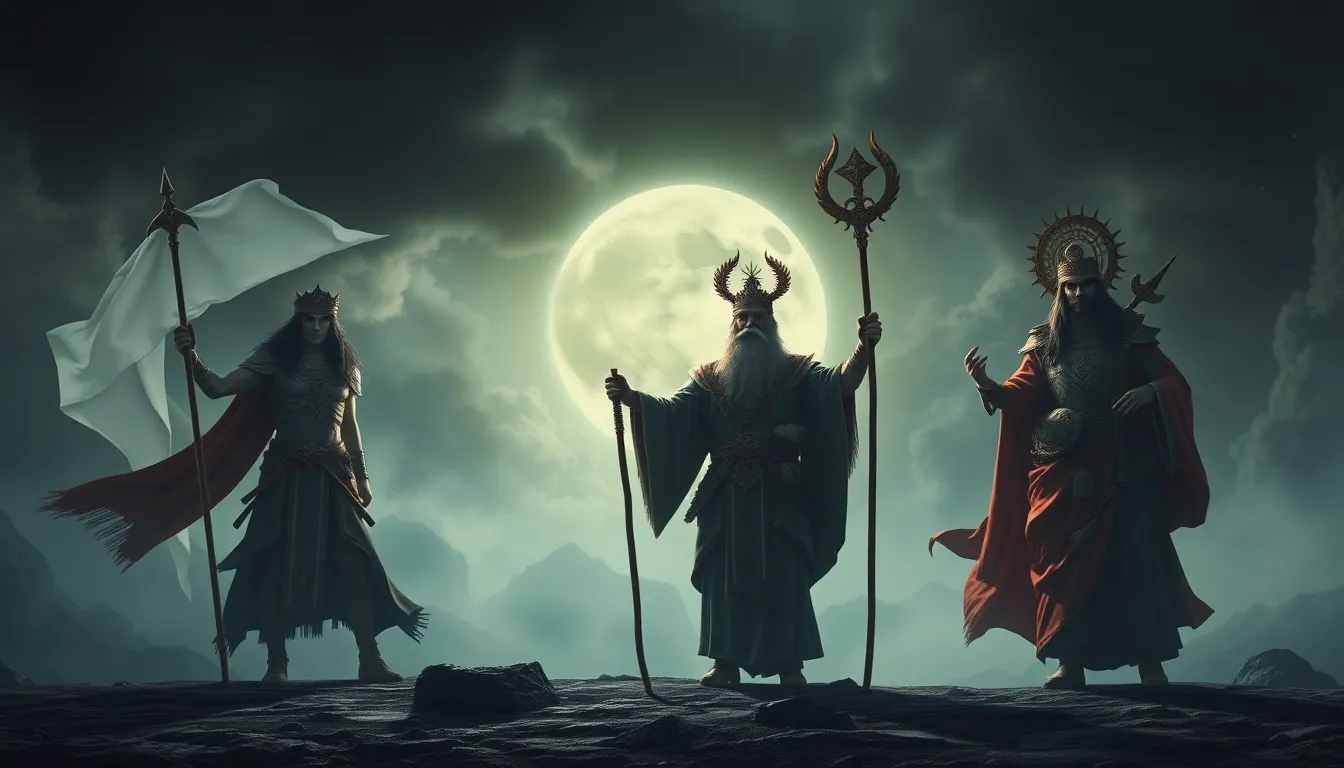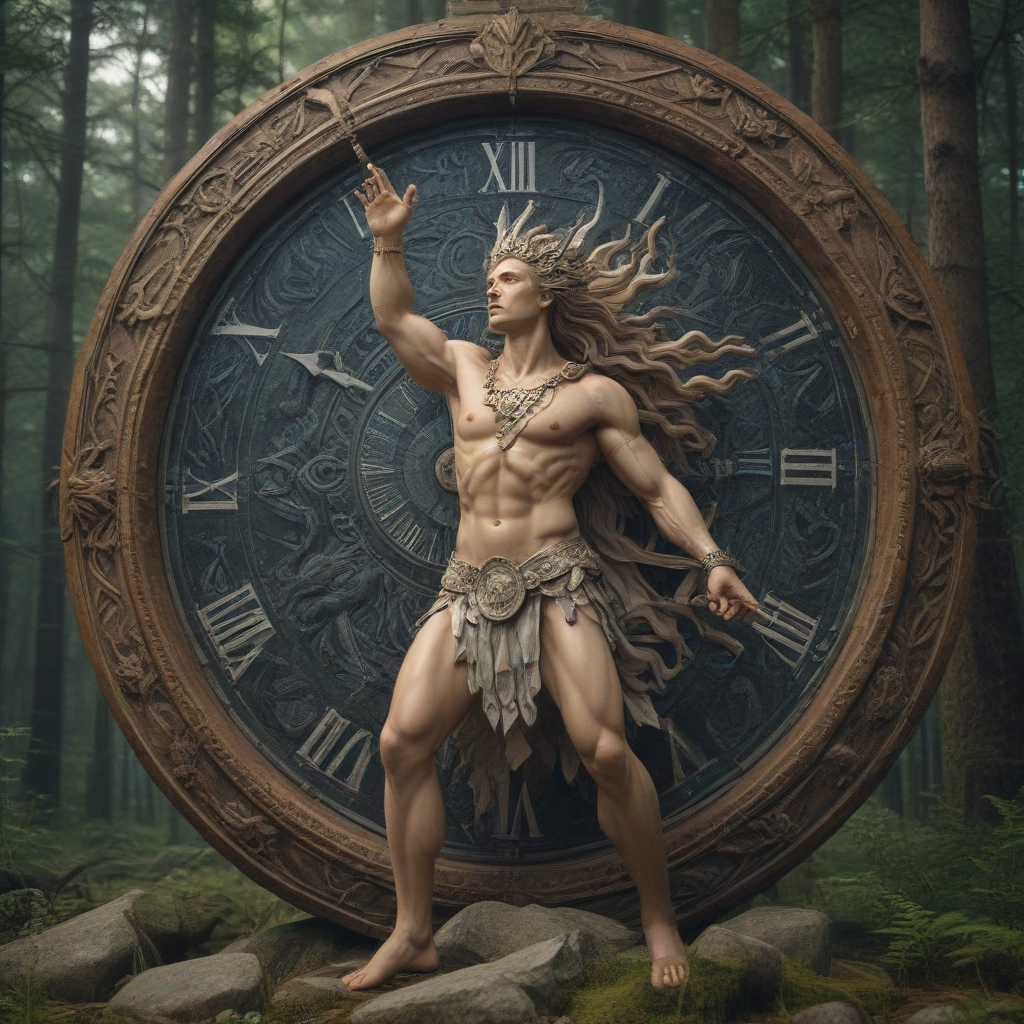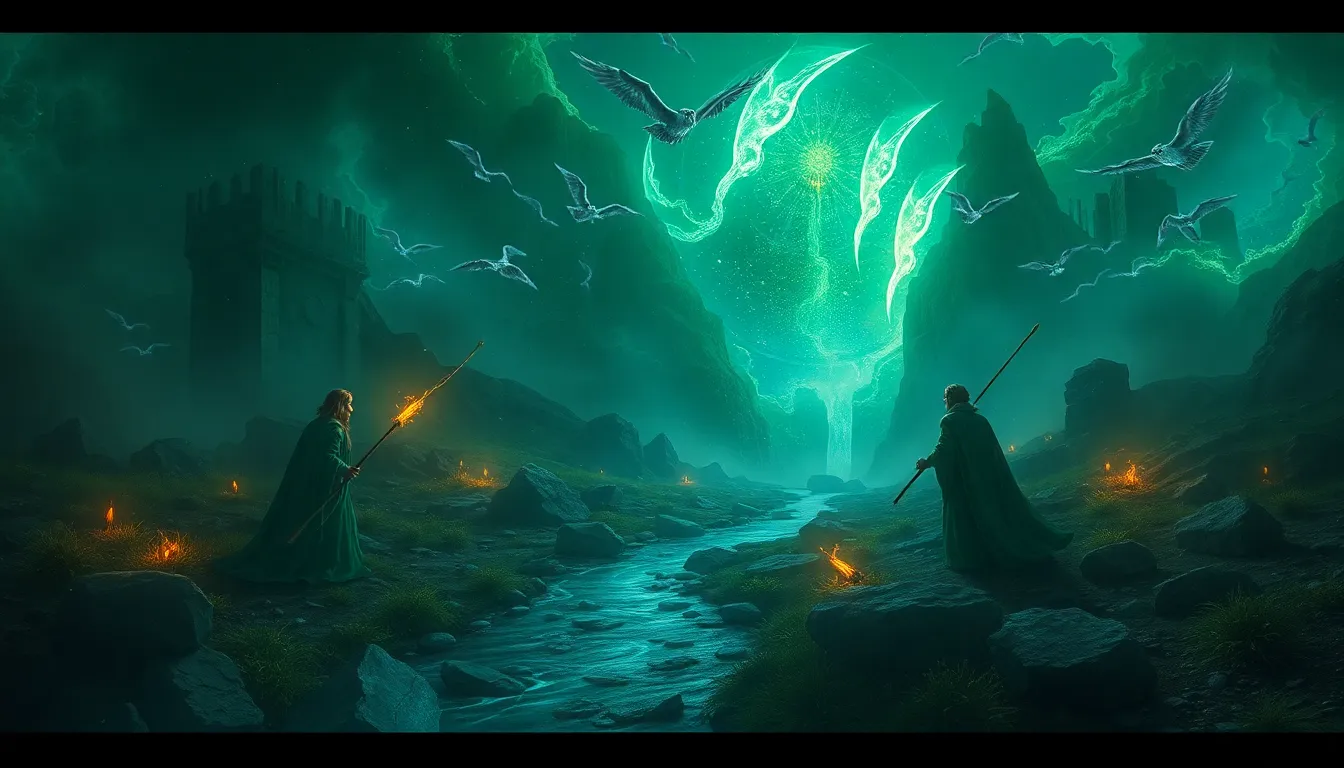The Mythical Significance of Cultural Heroes in Society
I. Introduction
Cultural heroes are individuals who embody the values, ideals, and aspirations of a society. They often reflect the collective consciousness of a culture, serving as symbols of virtue, courage, and resilience. Examining cultural heroes is crucial because they not only inspire individuals but also shape societal norms and values. This article will explore the historical context, psychological appeal, and evolving narratives surrounding cultural heroes, along with their role in social change and the media’s influence on their portrayal.
II. Historical Context of Cultural Heroes
Throughout history, civilizations have celebrated heroes who exemplify their cultural values.
A. Ancient civilizations and their heroes
- Greek mythology: Figures like Hercules and Achilles symbolize strength and honor, representing the ideals of ancient Greek society.
- Norse mythology: Thor and Odin serve as embodiments of bravery and wisdom, highlighting the values of courage and leadership in Norse culture.
Cultural heroes have also played a vital role in folklore and oral traditions, often serving as central figures in stories that teach moral lessons and convey cultural wisdom.
B. The role of cultural heroes in folklore and oral traditions
These stories not only entertain but also educate communities on ethical behavior and social norms, ensuring the transmission of cultural values from one generation to the next.
C. Evolution of cultural heroes through history
As societies evolve, so too do their heroes. The transition from mythological figures to historical icons reflects changes in societal values and priorities.
III. The Psychological Appeal of Cultural Heroes
The allure of cultural heroes can be understood through psychological frameworks.
A. Archetypes in Jungian psychology
According to Carl Jung, heroes serve as archetypes that resonate with our collective unconscious, representing the universal human experience.
B. The hero’s journey: Joseph Campbell’s framework
Joseph Campbell’s concept of the hero’s journey outlines a common narrative pattern found in many cultures, highlighting the stages of adventure, challenge, and transformation that heroes experience.
C. The role of identification and aspiration in hero worship
People often identify with heroes, aspiring to emulate their qualities and achievements, which can foster personal growth and motivation.
IV. Cultural Heroes Across Different Societies
Cultural heroes are not monolithic; they vary across different cultures and epochs.
A. Comparative analysis of heroes in various cultures
- Indigenous heroes: Many indigenous cultures honor heroes who exemplify their connection to the land and community, such as the stories of Pocahontas or Sitting Bull.
- Modern cultural icons: Figures like Martin Luther King Jr. and Mahatma Gandhi reflect contemporary movements for justice and equality, serving as beacons of hope for social change.
B. The impact of local vs. global heroes
Local heroes often resonate more deeply within their communities, while global heroes can inspire movements across borders, illustrating the interconnectedness of human experiences.
C. How cultural heroes reflect societal values and aspirations
Heroes serve as mirrors reflecting the values and aspirations of their societies, whether it be the pursuit of freedom, justice, or innovation.
V. The Role of Myth in Shaping Cultural Heroes
Myths play a fundamental role in the development of cultural heroes.
A. The intersection of myth and history
Many cultural heroes are rooted in historical figures whose lives have been mythologized over time, blurring the lines between fact and fiction.
B. The transformation of historical figures into mythical heroes
This transformation often occurs through storytelling, where the deeds of these figures are exaggerated and embellished to emphasize their heroic qualities.
C. Myths as a means of teaching moral lessons
Myths serve as vehicles for imparting moral lessons, allowing societies to convey important ethical teachings in an engaging manner.
VI. Cultural Heroes and Social Change
Cultural heroes often act as catalysts for social change.
A. Heroes as catalysts for revolution and reform
Many heroes have sparked revolutions and reforms by challenging the status quo and advocating for justice and equality.
B. Case studies of heroes who inspired social movements
- Rosa Parks: Her defiance sparked the Montgomery Bus Boycott, a pivotal moment in the Civil Rights Movement.
- Nelson Mandela: His struggle against apartheid in South Africa exemplified the fight for freedom and equality.
C. The legacy of cultural heroes in contemporary society
The impact of these heroes continues to resonate, inspiring new generations to advocate for change and uphold the values they represent.
VII. The Deconstruction of Cultural Heroes
In recent times, the narratives surrounding cultural heroes have faced scrutiny.
A. Critiques of idealized hero narratives
Many cultural heroes have been idealized, leading to unrealistic expectations and a lack of understanding of their complexities.
B. The impact of postmodernism on the perception of heroes
Postmodernism encourages a critical examination of power structures, leading to a reevaluation of who is considered a hero and why.
C. Alternative narratives: anti-heroes and flawed figures
The emergence of anti-heroes and flawed figures in popular culture challenges traditional notions of heroism, highlighting the complexities of human nature.
VIII. The Role of Media in Promoting Cultural Heroes
Media plays a significant role in shaping the narratives surrounding cultural heroes.
A. Representation of heroes in literature, film, and art
Literature and film often glamorize heroes, shaping public perception and inspiring admiration.
B. The influence of social media on hero narratives
Social media has democratized the creation of hero narratives, allowing diverse voices to share their interpretations and celebrate local heroes.
C. The commercialization of cultural heroes
The commercialization of heroes can lead to a dilution of their significance, reducing them to mere symbols for profit rather than genuine representations of societal values.
IX. The Future of Cultural Heroes in Society
The landscape of cultural heroes is evolving, particularly in the digital age.
A. Emerging heroes in the digital age
New heroes are emerging from various fields, including technology, environmental advocacy, and social justice, often leveraging social media to amplify their impact.
B. The role of diverse voices in shaping hero narratives
The inclusion of diverse voices in the hero narrative is crucial for reflecting the multifaceted nature of society and ensuring representation.
C. Predictions for the evolution of cultural heroes
As societal values continue to change, the definition of who qualifies as a hero will likely expand, incorporating a broader spectrum of experiences and contributions.
X. Conclusion
Cultural heroes hold significant importance in society, serving as symbols of hope, resilience, and aspiration. Through their narratives, they reflect the values and ideals of their cultures, inspire social change, and shape the collective consciousness. As we continue to navigate an ever-changing world, the role of cultural heroes will evolve, but their impact will remain a vital part of the human experience.


